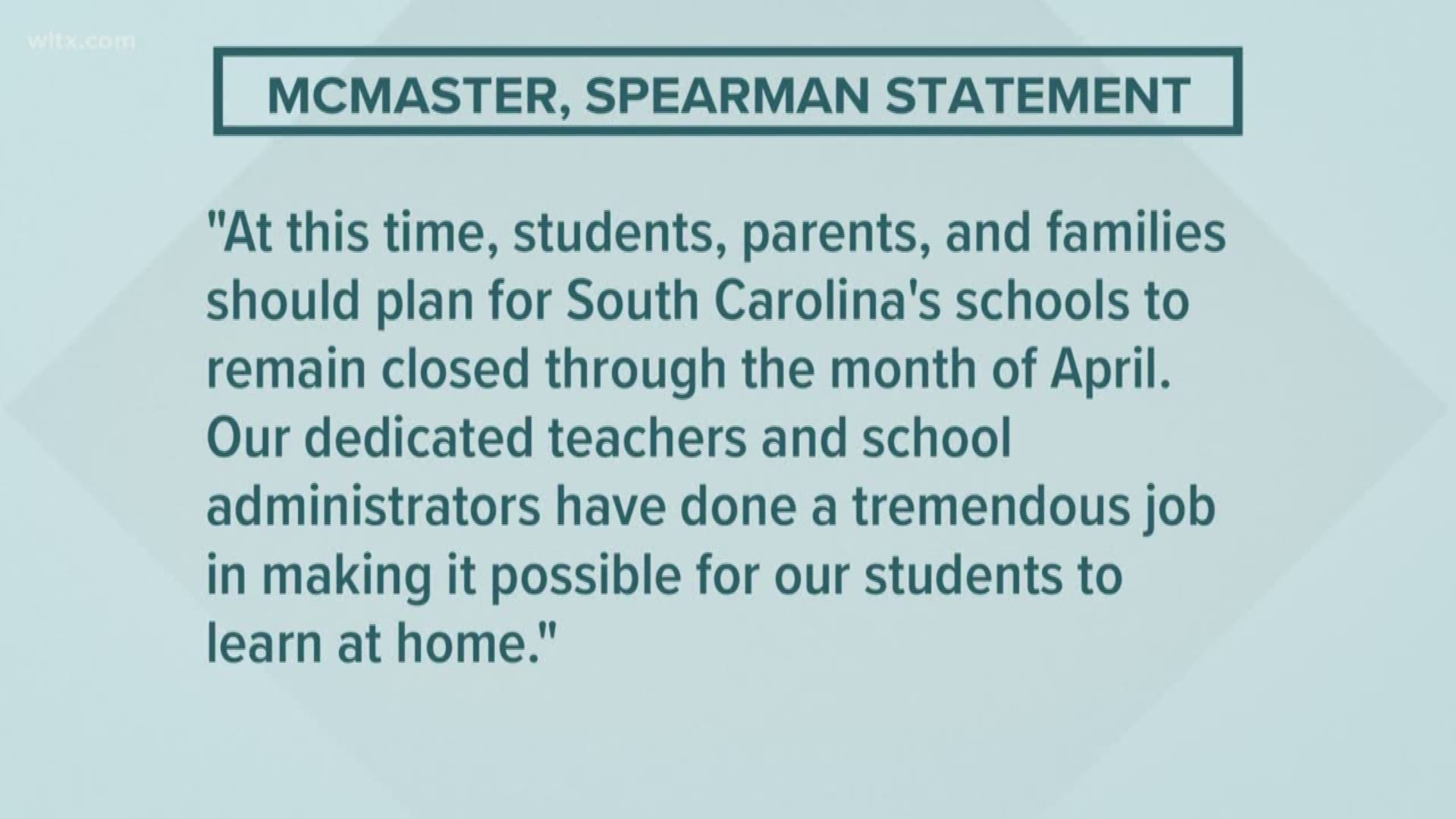COLUMBIA, S.C. — All of South Carolina's public schools will be shut down through the end of April, Governor Henry McMaster and South Carolina Superintendent of Education Molly Spearman said Tuesday.
The pair released the following joint statement announcing that South Carolina’s schools will remain closed until at least April 30:
“At this time, students, parents, and families should plan for South Carolina’s schools to remain closed through the month of April. Our dedicated teachers and school administrators have done a tremendous job in making it possible for our students to learn at home. We understand that the prospect of schools remaining closed for an extended period of time places stress and strain on parents and children. Rest assured, if there is any way to safely open our schools earlier, we will do that, but schools must remain closed to protect the health and safety of South Carolinians.”
Back on March 15, Governor McMaster issued Executive Order 2020-09, which closed public schools for students and non-essential employees through March 31st. The governor will issue an additional executive order to extend the K-12 school closures through the month of April in the coming days.
As his previous executive order did, the governor’s executive order will apply to the state’s public colleges, universities, and technical colleges, and encourage those institutions to maintain existing plans to provide instruction through virtual learning.
What is the Coronavirus?
Coronaviruses are a large family of viruses that cause respiratory infections ranging from the common cold to more serious diseases such as pneumonia. DHEC is working with CDC to identify all those who might have been in contact with these individuals. These people will be monitored for fever and respiratory symptoms.
People can help to prevent the spread of the virus in the following ways:
- wash your hands often with soap and water for at least 20 seconds, especially after using the bathroom, before eating, and after blowing your nose, coughing or sneezing. If soap and water are not readily available, use an alcohol-based hand sanitizer with at least 60% alcohol. And, always wash your hands with soap and water if they are visibly dirty.
- avoid touching your eyes, nose or mouth.
- stay home when you’re sick.
- cough or sneeze into your elbow or use a tissue and put it in the trash immediately.
- clean and disinfect frequently touched objects and surfaces.
- get the influenza vaccine.
For general questions about COVID-19 residents should visit the DHEC website at scdhec.gov/COVID19 or the CDC website here.
For residents concerned about their own personal health or are showing symptoms such as fever, cough or shortness of breath, please call your personal doctor or healthcare provider. DHEC has launched its Care Line. If residents have general questions about COVID-19, the DHEC Care Line is here to help. Call 1-855-472-3432. Staff are answering calls from 8 a.m. to 6 p.m. Call volume has been high. Callers are urged to be patient if they receive a busy signal and try their call at a later time.

